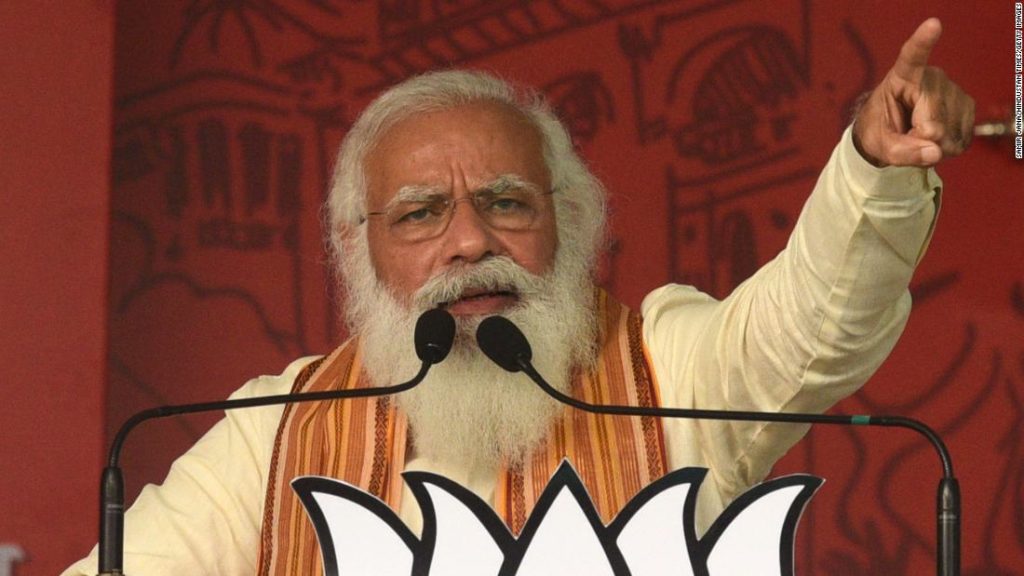The decision to continue with the project in the capital, New Delhi, has infuriated the public and opposition politicians, who have pointed to the apparent disconnect in pouring millions into a construction project when the country is struggling with its worst-ever public health crisis.
The petitioners argue the parliament buildings don’t constitute an essential service and construction work could even become a Covid super-spreader event, according to special leave petition filed by lawyer Nitin Saluja. Workers are continuing to be ferried from their labor camp to the construction site, according to the document.
The High Court offered to hear the case later this month, but petitioners took the matter to the Supreme Court, arguing the lower court had “failed to appreciate the gravity” of the situation.
“Since there is a public health emergency in the matter, any delay could be detrimental to the larger public interest,” Saluja wrote to the Supreme Court. Saluja said the case will most likely be heard Friday.
India has reported more than 3,000 Covid-19 deaths in each of the past few days. The country accounted for a quarter of global coronavirus fatalities over the past week, according to the World Health Organization’s (WHO) weekly Covid-19 report.
Vanity project?
Even before the second wave, Central Vista had attracted controversy, with critics saying the redevelopment would come at the cost of history and heritage. But opposition has become more heated recently, with politicians slamming the plan as a vanity project.
Proponents of the 86-acre (35-hectare) revamp say it is necessary as the current 100-year-old buildings are not fit for purpose.
An estimated 46,700 people are expected to be temporarily employed during construction, according to minutes released last week of an April expert appraisal committee meeting.
That meeting estimated the expansion of the parliament building and construction of a new parliament building will be completed in November 2022, while the Prime Minister’s residence is set to be finished in December 2022. The entire project is set to be completed by the end of 2026.
The $1.8 billion project was given environmental approval from an expert panel of the Environment Ministry earlier this year, essentially giving the project the green light.
But as coronavirus cases have soared, so too has the backlash to Modi’s project.
The criticism has gone beyond politicians. On Twitter, some people have even drawn comparisons between Modi and Nero, the Roman emperor who, according to legend, fiddled while Rome burned.
The project is just the latest mark against Modi, who has been criticized for his handling of the second wave. Even as cases skyrocketed, critics say he underplayed the risk and continued to hold mass political rallies ahead of state elections.
You may also like
-
Afghanistan: Civilian casualties hit record high amid US withdrawal, UN says
-
How Taiwan is trying to defend against a cyber ‘World War III’
-
Pandemic travel news this week: Quarantine escapes and airplane disguises
-
Why would anyone trust Brexit Britain again?
-
Black fungus: A second crisis is killing survivors of India’s worst Covid wave

